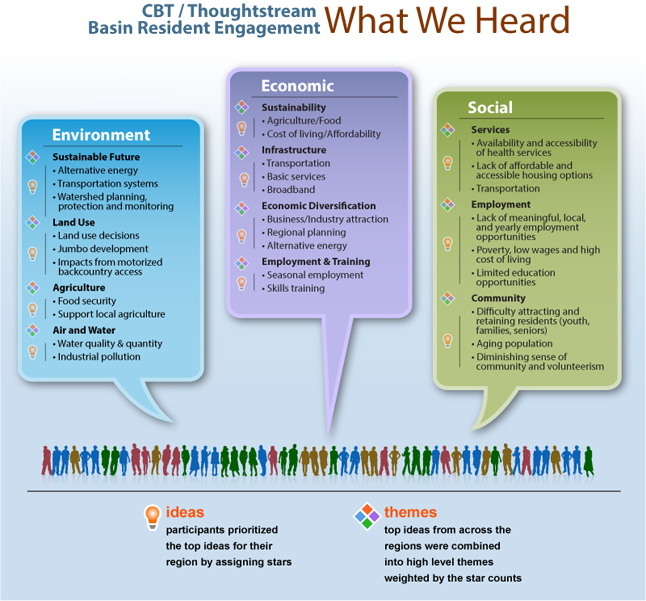
You logged on, you thought, you prioritized. Now Basin residents can visit CBT’s Thoughtstream website to see results from its online engagement pilot project.
A statement from the CBT on Monday said close to 1,400 residents participated in the CBT’s Thoughtstream project and answered six questions about economic, social and environmental well-being. Over 10,000 thoughts were generated and grouped under main ideas. Participants then assigned stars to those ideas, identifying over 1,800 priorities in total.
The priorities that received the most stars from the most residents were identified as top ideas and grouped into themes to show the major areas of interest across the Basin. Those interests range from land use to affordable housing to local food security and many topics in between.
“We are always looking at ways to improve how we gather input from residents of the Columbia Basin,” CBT CEO Neil Muth said in the statement. “Online tools such as Thoughtstream are one more way to ensure CBT considers a wide variety of information as we plan for the years to come.”
The CBT will be inviting public comments on the first draft of its new environmental strategic plan this fall, and is just getting underway with public engagement on the renewal of its social and economic strategic plans.
“As we renew these plans, the more information we can gather about what is important to Basin residents, the better,” Muth said.
Visitors to CBT’s Thoughtstream website can choose to view social, economic and environmental priorities organized into Basin-wide themes or select a region to see priorities identified in that specific geographic area. The website also allows residents to look at any of the original 10,000-plus thoughts and download a report of all results.
“While CBT cannot directly address some of the ideas identified, we can address others and in some cases are already doing so through existing CBT programs,” he said.
Information gathered in Thoughtstream will also be available to organizations interested in knowing more about what Basin residents have identified as important.
CBT supports efforts to deliver social, economic and environmental benefits to the residents of the Columbia Basin. To learn more about CBT programs and initiatives, visit www.cbt.org or call 1-800-505-8998.



